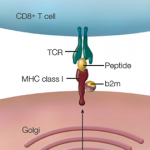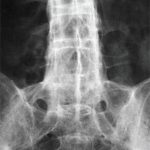What remains unknown and critical to understanding the development of RA is the event associated with the binding of peptides influenced by the P4 pocket, he said, pointing out the limitations and problems with the hypothesis put forth by Hill and colleagues in 2003 on the conversion of arginine to citrulline that permits binding of peptides.1
Disease Susceptibility in PsA
Unlike RA, the genotype of PsA is heterogeneous, said Dr. Winchester, citing data that show that the HLA associations predisposing a person to PsA are largely different than those predisposing a person to cutaneous psoriasis. Data show that 87% of people with PsA have one or more of three susceptibility alleles (HLA-B*08, HLA-B*27, and HLA-C*06:02), none of which have common structure features, whereas the genotype associated with cutaneous psoriasis is primarily associated with HLA-C*06:02. He also said data show that phenotypes found in people with PsA differ with each of the three different genotypes, citing data that show, for example, that highly penetrant early-onset psoriasis and late-onset low-penetrant arthritis is characterized by HLA-C*06:02 and that early-onset arthritis that develops more synchronously with the onset of skin disease is more characteristic of HLA-B*27.
Report Card: Where Do We Stand
Dr. Winchester concluded by talking about the status of the progress on what is known about the HLA associations in rheumatic diseases. He emphasized that, because of the differences in the way the HLA molecules confer susceptibility to RA and PsA, progress in understanding these mechanisms is at the heart of the challenge of thwarting the processes involving interactions between HLA molecules, self-peptides, and T-cell receptors that result in disease. Saying that the general details of the HLA component are beginning to be identified, he emphasized that what remains unknown are identification of the peptides that drive the autoimmune process as well as identification and recognition of the properties of the T-cell clonotypes that drive the autoimmune processes.
“Powerful new emerging technologies give the promise that, over the next decade, understanding will be greatly advanced and likely will lead to rational therapies directed at the fundamental events driving these diseases,” he said.
Mary Beth Nierengarten is a freelance medical journalist based in St. Paul, Minn.


